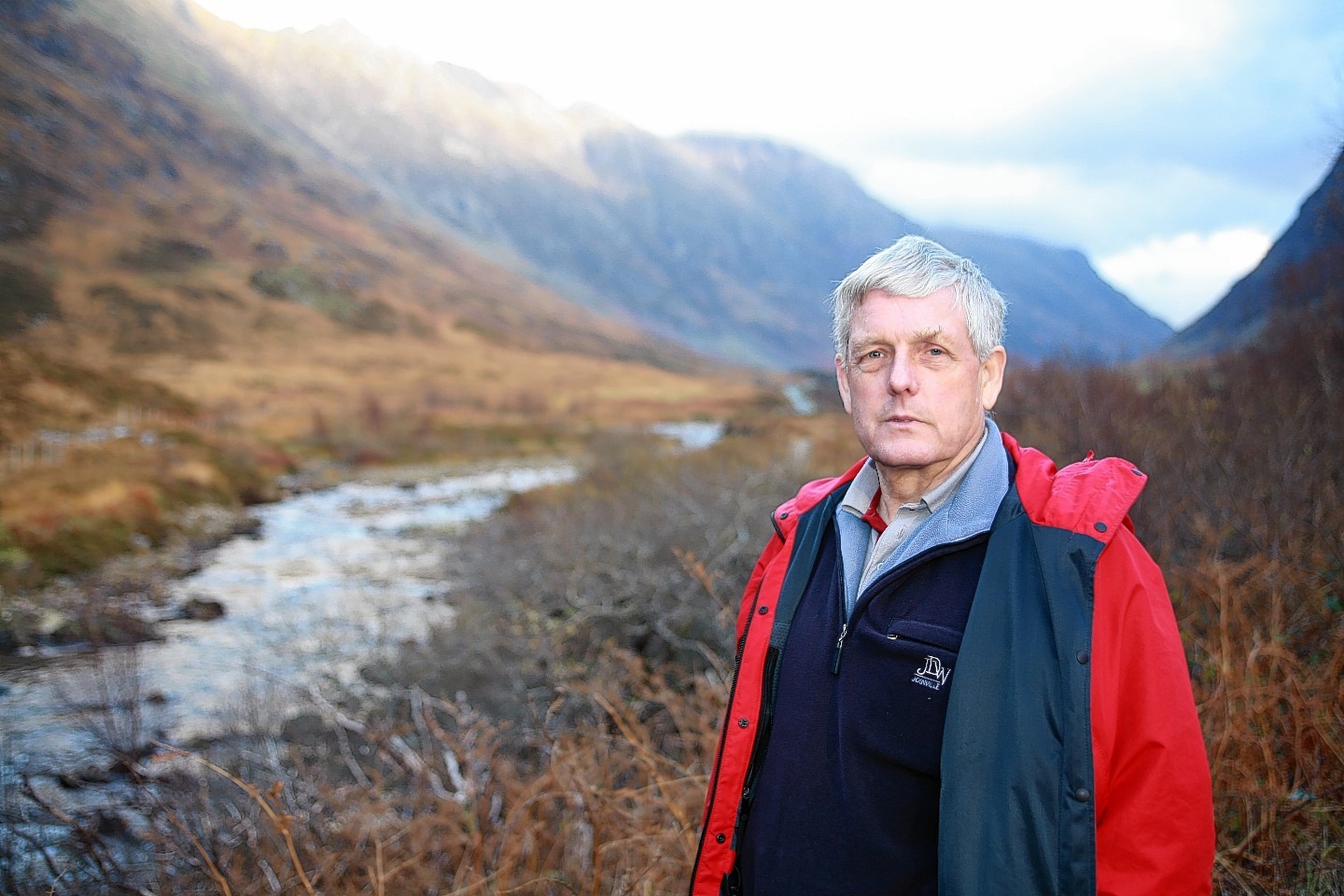Bereaved families are propping up the mountain rescue service due to a lack of Scottish Government funding, it was claimed last night.
The stark financial realities facing volunteers were highlighted by John Grieve, who has just retired as leader of the Glencoe team after 20 years at the helm.
The Scottish Government provides just over £300,000 a year for the 27 crews in Scotland but their equipment costs run to many thousands more.
Last night a spokeswoman insisted it valued the service greatly and was the only UK government to fund its rescuers.
However, Mr Grieve, 70, a member of the Glencoe team for half a century, said: “We provide a hard-nosed, frontline emergency service and they are getting a service that is worth millions basically free.
“Sadly the biggest donations tend to come from the families and friends of people who have died in the hills and from people bequeathing money to us in their wills.”
The Glencoe team responded to 73 call-outs, including nine deaths, last year. So far this year, members have been called out 54 times, including to three deaths.
It is the second busiest in Scotland after the Lochaber team – but only receives about £18,000 a year from the government, along with a further £7,500 from Police Scotland, making a total of £25,500 from the public purse.
However, basic running costs amount to £80,000 a year and additional funds have to be raised if new vehicles or equipment are needed.
Mr Grieve added: “I think the service we offer is way beyond what could be run with a professional service. We have the ability to carry out rescues out of sheer experience, and I passionately believe it’s the best way to do it.
“But I feel we should get more money from the public purse, as long as it doesn’t come with any strings attached, which is always a danger.”
Last night Highlands and Islands MSP Mary Scanlon said she would be calling for a review of mountain rescue funding.
She said: “Mountain rescue teams provide an essential service and £300,000 a year from the government seems a very small sum to cover all the teams in Scotland.
“We are very grateful to the families and friends who raise funds and make donations. We can’t thank them enough for the continuation and sustainability of this service.
“But I do feel the government should be doing more and I am going to be asking for a review of the funding for this essential service.”
Bobby Willis, 35, of London, whose friend Shaun Bowden died after a climbing accident in March last year, agreed that mountain rescue teams were underfunded by the government.
However, he said raising money for Glencoe Mountain Rescue Team in his friend’s memory had helped him to cope with his death.
A Scottish Government spokeswoman said: “While mountain rescue teams are charities and rely on donations like any other organisation of charitable status, the Scottish Government provides a considerable funding allocation of around £300,000 to them annually and is the only government in the UK to do so.
“We greatly value the selfless work they do on a voluntary basis, helping those in need of assistance 24 hours a day.”
Superintendent Dougie Lynch, who is head of specialist operations for Police Scotland, said: “Mountain rescue teams across Scotland do a remarkable job and Police Scotland values their help and commitment to keeping people safe.
“Police Scotland has previously contributed to the funding of the mountain rescue teams and is continuing to do so.”
